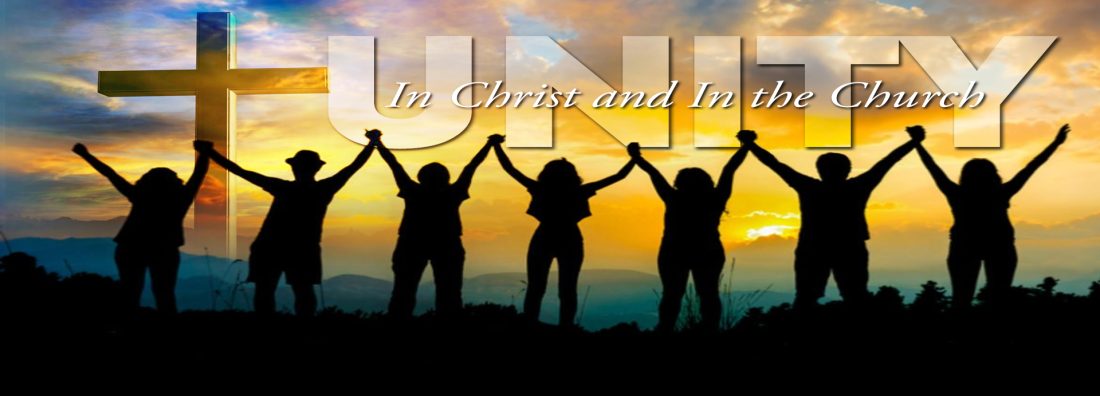This Rejoice & Praise God Sunday Open Thread, with full respect to those who worship God on the Sabbath, is a place to reaffirm our worship of our Creator, our Father, our King Eternal.
It’s also a place to read, post, and discuss news that is worth knowing and sharing. Please post links to any news stories that you use as sources or quote from.
In the QTree, we’re a friendly and civil lot. We encourage free speech and the open exchange and civil discussion of different ideas. Topics aren’t constrained, and sound logic is highly encouraged, all built on a solid foundation of truth and established facts.
We have a policy of mutual respect, shown by civility. Civility encourages discussions, promotes objectivity and rational thought in discourse, and camaraderie in the participants – characteristics we strive toward in our Q Tree community.
Please show respect and consideration for our fellow QTreepers. Before hitting the “post” button, please proofread your post and make sure your opinion addresses the issue only, and does not confront or denigrate the poster. Keep to the topic – avoid “you” and “your”. Here in The Q Tree, personal attacks, name-calling, ridicule, insults, baiting, and other conduct for which a penalty flag would be thrown are VERBOTEN.
In The Q Tree, we’re compatriots, sitting around the campfire, roasting hot dogs, making s’mores, and discussing, agreeing, and disagreeing about whatever interests us. This board will remain a home for those who seek respectful conversations.
Please also consider the Guidelines for posting and discussion printed here:
https://www.theqtree.com/2019/01/01/dear-maga-open-topic-20190101/
On this day and every day –
God is in Control
. . . and His Grace is Sufficient, so . . .
Keep Looking Up

Hopefully, every Sunday, we can find something here that will build us up a little . . . give us a smile . . . and add some joy or peace, very much needed in all our lives.
“This day is holy to the Lord your God;
do not mourn nor weep.” . . .
“Go your way, eat the fat, drink the sweet,
and send portions to those for whom nothing is prepared;
for this day is holy to our Lord.
Do not sorrow,
for the joy of the Lord is your strength.”




The Promised Land
God promised a heritage to His people, Israel (Genesis 12:7; 15:18–20). The Promised Land was an endowment from Earth’s Creator to the children of Israel. Israel acquired the Promised Land only through God’s guidance and His miraculous intervention in history (Exodus 33:14–16; Psalm 44:1–8; 136:10–22).
The promise of a land for God’s people began in Genesis 12 when God appeared to Abram (Abraham) and told him that he had been chosen to be the father of many nations. God promised to bless Abram and lead him into a land that would belong to his offspring as a lasting heritage. God later confirmed this promise to Abraham’s son Isaac (Genesis 26:3) and then to Isaac’s son Jacob (Genesis 28:13).
The boundaries of the Promised Land were from the River of Egypt (the Nile) to the Euphrates (Exodus 23:31). Also, in Joshua 1:4 God promised Joshua that the land of Israel would include territory extending “from the desert to Lebanon, and from the great river, the Euphrates—all the Hittite country—to the Mediterranean Sea in the west.” This territory would include the land from the southern tip of Israel along the Red Sea to the Euphrates River on the east, the border of Syria on the north (land of the Hittites), and the Mediterranean Sea (Great Sea) to the west: Modern-day Israel, including Gaza and the West Bank, and Jordan, as well as parts of Egypt, Syria, Saudi Arabia, and Iraq.
By the time Israel was ready to take the land, hundreds of years after Abraham, it was inhabited by pagan nations: Canaanites, Amorites, Hittites, Perizzites, Hivites, and Jebusites (Exodus 33:2). When it was time for the Israelites to inherit the Promised Land, God raised up Moses to bring His people out of slavery in Egypt and used Joshua to lead a military conquest of Canaan.
The Bible teaches that God will eventually fulfill the promise to give Israel full control over the Promised Land. Israel’s full territory will ultimately be ruled by the Messiah during the Millennium (Revelation 20:1–6). God’s promises, partly fulfilled throughout history, will have complete, literal, fulfillment prior to God’s creation of new heavens and a new earth (Revelation 21—22; cf. Psalm 72:8).
For all time?
In Deuteronomy 4:40 the Lord gave the Israelites this command: “Keep his decrees and commands, which I am giving you today, so that it may go well with you and your children after you and that you may live long in the land the Lord your God gives you for all time.”
This passage contains a conditional offer. Israel would have the Promised Land as they kept God’s “decrees and commands.” The Israelites had to obey God’s statutes in order to remain in the land. History reveals that the Israelites often disobeyed, resulting in temporary times of exile from their land. However, the end of this passage notes that God is giving Israel the Promised Land “for all time.”
There are both a conditional and unconditional aspect to God’s promise. God offered blessings within the Promised Land conditionally, related to the Israelites’ obedience. Yet God also made an unconditional vow that Israel would have the Promised Land “for all time.” The promise of Deuteronomy 4:40 is a far-seeing promise, extending to the end of this world’s existence and even into the time of the new earth.
Many other passages of Scripture support the fact that Israel will possess the Promised Land forever. For example, God spoke to Isaac in Genesis 26:3, saying, “Stay in this land for a while, and I will be with you and will bless you. For to you and your descendants I will give all these lands and will confirm the oath I swore to your father Abraham.” The Lord also spoke to Jacob in Genesis 28:13–14 with similar words: “There above it stood the Lord, and he said: ‘I am the Lord, the God of your father Abraham and the God of Isaac. I will give you and your descendants the land on which you are lying. Your descendants will be like the dust of the earth, and you will spread out to the west and to the east, to the north and to the south. All peoples on earth will be blessed through you and your offspring.’” See also Psalm 132:14; Isaiah 14;1; and Zechariah 2:3–5, 10–13.










